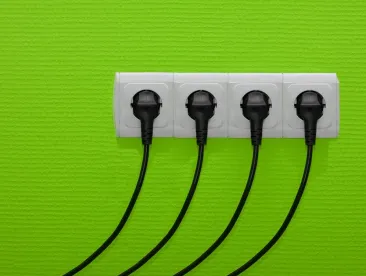Earlier this month members of Congress jointly introduced the “Energy Consumer Protection Act of 2023,” with the intention of expanding the Federal Energy Regulatory Commission’s (“FERC”) ability to address energy market trading violations under the Federal Power Act and Natural Gas Act. Under the proposed bicameral bill, Section 316A of the Federal Power Act and Section 22 of the Natural Gas Act would be amended to include new suspension penalties for violators, in addition to the existing monetary penalties that were already available to FERC. With this expanded civil penalty authority, the Commission would have the ability to permanently, or for such period of time as the Commission deems appropriate, prohibit any person from engaging in direct or indirect trading of natural gas, electric energy, electric energy products, or transmission services, subject to the jurisdiction of FERC.
Furthermore, the language of the enforcement provisions of each Act, Section 314(d) of the Federal Power Act and Section 20(d) of the Natural Gas Act, would be amended as well to broaden the scope of FERC’s enforcement capabilities by replacing the term “individual” with “person.” Under corporate personhood, the use of the term “person” includes legal entities such as corporations and associations, in addition to individuals. As such, the existing enforcement provisions of each Act would be altered to reflect the same broad suspension penalties for violators that have been proposed for Section 316A and Section 22, respectively.
The proposed bill also adds Section 4B to the Natural Gas Act, which would prohibit persons from willfully and knowingly reporting false information to a federal agency, or private-sector price-reporting agency, concerning the transportation or sale of natural gas (subject to FERC jurisdiction). The new language of Section 4B mirrors the prohibition on filing false information that is already incorporated in Section 221 of the Federal Power Act. As such, the Energy Consumer Protection Act of 2023 seeks to punish the same type of violations in the natural gas trading sector as the Federal Power Act already penalizes for in electric energy trading.
The bill was proposed because members of Congress, particularly in the western United States, were concerned with rising energy costs after reaching record-high natural gas prices in California during the winter in 2022/23. Recent investigations by FERC into skyrocketing natural gas and energy prices in the wake of Winter Storm Uri in Texas (2021) also likely prompted the proposed legislation, as FERC found anomalies in the post-storm market that may have been caused by market manipulation in the region. It is also expected that accelerating climate change will cause greater severity of weather events and potentially destabilize U.S. energy commodity markets.
The purpose of the Energy Consumer Protection Act of 2023 is to expand the enforcement capabilities of FERC to include new suspension penalties for violators of the Federal Power Act and Natural Gas Act, particularly where these violations exacerbate the volatility in energy markets. With this addition to the existing Acts, FERC would have the ability to ban companies from trading in energy markets, whereas before they were only able to assign monetary penalties for corporations engaged in market manipulation or the reporting of false information to applicable agencies.
If enacted, these amendments will further test the bounds of FERC’s and the Commodity Futures Trading Commission’s (“CFTC”) jurisdiction given that both power and natural gas qualify as “commodities” under the Commodity Exchange Act of 1936; as such, the CFTC has the non-exclusive jurisdiction to prosecute fraud and manipulation in trading commodities in the interstate commerce. As was shown several years ago in the Amaranth litigation (U.S. Commodity Futures Trading Commission v. Amaranth Advisors LLC, No. 07 Civ. 6682, (DC) May 21, 2008), sometimes FERC’s and CFTC’s jurisdiction may overlap as it relates to energy commodities.
(The author wishes to thank summer associate William Lewis for his research and contributions to this news item.)




 />i
/>i

